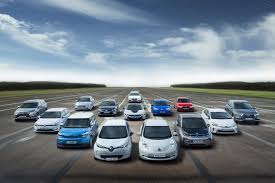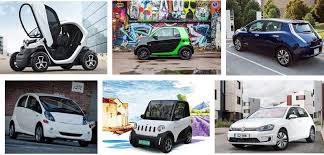What can France tell the world about selling electric cars?
 France plans to ban fossil-fuel-powered cars by 2040, and Paris has said it will ban them by 2030. However, only 2% of all cars sold in France in 2018 were fully electric and hybrid.
France plans to ban fossil-fuel-powered cars by 2040, and Paris has said it will ban them by 2030. However, only 2% of all cars sold in France in 2018 were fully electric and hybrid.
What is happening in France is a symbol of the global challenge facing electric vehicles. Although the technology of electric vehicles is improving and becoming more affordable, few consumers are aware of this progress. Misinformation about new technologies often slows down public acceptance and can be particularly detrimental to electric vehicles. There is no doubt that the misconceptions of French consumers are not limited to France, which means that automakers, dealers and governments around the world have the task of making electric vehicles as widely known as possible.In a recent study conducted by Oliver Wyman (Oliver Wyman) with the participation of over 1,000 French consumers, it was found that 76% expressed interest in buying the electric car, but most still hesitated, because he considered that the limitations in battery technology do not allow them to make a longer trip. 56% said that the battery life of electric vehicles is too small. They also believed that electric cars were much more expensive to own and operate. While these perceptions are not entirely unfounded, the reality is much better than current consumer assumptions.
Most French consumers have estimated the average range of electric cars at about 250 km, although the average current range of the electric car is now more than 300 km. Currently, Tesla offers electric cars with a power reserve on one charge of 500 and more kilometers, and many other automakers, including Chevrolet, Audi, Hyundai and Nissan, offer models with a power reserve of over 360 km. Such a power reserve is enough to overcome most routes in Europe and even the United States.
Electric cars are more expensive than conventional cars with ice. If a model with a middle-class ice will cost about €18 000 in France, the electric car is likely to cost about €32 000 — the cost will drop to €26 000 after the application of French government subsidies.
When assessing the cost of electric vehicles, French consumers often did not take into account how profitable electric vehicles are in operation — they do not need maintenance and repair as cars with ice. A full charge of a standard battery at night usually costs about €5, four out of five consumers believe that the cost of charging is higher, and more than half of the respondents believe that this figure is 4-10 times more.
According to a study by UFC Que Choisir, a French consumer organization, the total cost of ownership and operation of an electric mid-size sedan for the first four years will be 3.4% less than that of a new diesel car. Of course, the electric model will cost almost € 3000 more expensive than a car with an engine at the time of purchase, but the cost pays off cheap operation.
Lack of knowledge about electric vehicles makes people doubt them. For successful promotion of electromobility carmakers and dealers should pay more attention to the promotion, information and services, allowing you to test an electric car before deciding on its purchase.



